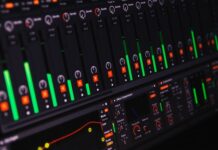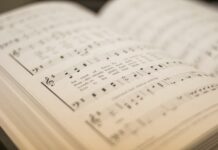Music is a language that speaks to the soul. Whether you are a seasoned musician or a beginner, there is always room for improvement. Enhancing your musical abilities can be an enriching and rewarding experience. In this article, we will discuss various techniques, strategies, and tips that can help you improve your musical skills and take your playing to the next level.
Music has the power to bring people together and evoke emotions like no other art form. Whether you are a professional musician or a hobbyist, there is always something new to learn and explore. By enhancing your musical abilities, you can deepen your connection to music, improve your performance, and even unlock new creative possibilities.
The Importance of Practice
Practice is the foundation of musical improvement. Whether you are learning a new piece or perfecting a familiar one, regular practice is essential for progress. Here are some tips to make the most of your practice time:
- Set specific goals: Define what you want to achieve in each practice session and track your progress.
- Focus on technique: Pay attention to your posture, hand position, and finger movements to ensure proper technique.
- Break it down: If a piece is too challenging, break it down into smaller sections and practice them individually.
- Take breaks: Frequent breaks can help prevent fatigue and improve focus.
Understanding Music Theory
Music theory provides a framework for understanding the structure and composition of music. By learning music theory, you can enhance your understanding of music and improve your ability to create and interpret it. Here are some basic concepts to explore:
- Scales and modes: The building blocks of melody and harmony.
- Chords and chord progressions: The backbone of many songs and compositions.
- Time signatures and rhythms: The rhythmic structure of music.
- Musical notation: The written language of music.
Playing with Other Musicians
Playing with other musicians can be a great way to improve your skills and develop your musicality. By collaborating with others, you can learn new techniques, explore different genres, and gain valuable feedback. Here are some tips for playing with other musicians:
- Listen and communicate: Pay attention to the other musicians and communicate effectively to create a cohesive performance.
- Embrace diversity: Play with musicians who have different styles and backgrounds to broaden your musical horizons.
- Experiment: Try new things and be open to new ideas.
- Have fun: Remember that music is meant to be enjoyed, so have fun and enjoy the experience.
Exploring Different Genres
Exploring different genres can help you expand your musical vocabulary and gain new insights into music. By exposing yourself to different styles and traditions, you can become a more versatile and creative musician. Here are some genres to explore:
- Classical: Explore the works of famous composers like Bach, Mozart, and Beethoven.
- Jazz: Learn the basics of jazz improvisation and explore the history of this unique American art form.
- Rock: Experiment with power chords, distortion, and other rock techniques.
- World music: Discover the music of different cultures and traditions from around the world.
Experimenting with Instruments and Gear
Experimenting with different instruments and gear can help you find your unique sound and style. By trying out different instruments, effects pedals, and amplifiers, you can explore new sounds and textures. Here are some tips for experimenting with instruments and gear:
- Try out different instruments: If you play guitar, try playing bass, drums, or keyboards to gain a broader understanding of music.
- Experiment with effects pedals: Effects pedals can add unique textures and tones to your playing. Try out different types like delay, reverb, or distortion to create new sounds.
- Play with amplifiers: Amplifiers can significantly affect the tone of your instrument. Experiment with different amps and settings to find the right sound for you.
Developing a Good Ear
Developing a good ear is essential for any musician. By improving your ability to hear and recognize pitch, rhythm, and melody, you can become a better player and performer. Here are some tips for developing a good ear:
- Practice ear training exercises: Ear training exercises can help improve your ability to recognize and reproduce pitches, intervals, and chords.
- Listen actively: Listen to music actively and pay attention to the details, such as the rhythm, melody, and harmony.
- Sing along: Singing along to music can help you internalize melodies and improve your pitch.
- Play by ear: Try playing along with songs by ear, without relying on sheet music or tablature.
Memorizing Music
Memorizing music can be challenging, but it is an essential skill for any musician. By memorizing music, you can perform with more confidence and freedom. Here are some tips for memorizing music:
- Break it down: Memorize small sections of a piece at a time and gradually build up to larger sections.
- Use visualization techniques: Visualize the music in your mind as you play, and associate specific parts of the music with physical movements or images.
- Practice away from your instrument: Practice the music away from your instrument to reinforce your memory.
- Use repetition: Repetition is essential for memorization, so practice the same sections of music multiple times.
Incorporating Technology
Technology can be a powerful tool for enhancing your musical abilities. From digital audio workstations to online music courses, technology can help you learn, create, and perform music. Here are some ways to incorporate technology into your musical practice:
- Use digital audio workstations (DAWs): DAWs like Ableton Live and Logic Pro can help you record, produce, and mix your music.
- Take online music courses: Online music courses can help you learn music theory, production techniques, and other skills.
- Use apps: There are many apps available that can help you with everything from ear training to songwriting.
- Experiment with virtual instruments: Virtual instruments can provide a vast range of sounds and textures, without the need for physical instruments.
Seeking Out Feedback
Feedback is essential for improving your musical abilities. Whether it’s from a teacher, a fellow musician, or an audience member, feedback can help you identify your strengths and weaknesses and develop a plan for improvement. Here are some tips for seeking out feedback:
- Find a good teacher: A good teacher can provide constructive feedback and help you develop a personalized practice plan.
- Attend jam sessions or open mics: Playing for other musicians and audiences can help you get feedback on your performance.
- Record yourself: Recording yourself can provide valuable feedback on your playing and help you identify areas for improvement.
- Ask for feedback: Ask other musicians for feedback on your playing and be open to their suggestions.
Maintaining Your Health and Well-Being
Maintaining your health and well-being is essential for any musician. By taking care of your body and mind, you can perform at your best and avoid injury. Here are some tips for maintaining your health and well-being:
- Warm up and stretch: Warm up before playing and stretch regularly to prevent injury.
- Take breaks: Taking breaks during practice sessions or performances can help prevent fatigue and maintain focus.
- Stay hydrated: Drinking plenty of water is essential for maintaining your energy and focus during practice sessions or performances.
- Get enough sleep: Getting enough sleep is crucial for your overall health and well-being, and can help you perform at your best.
- Manage stress: Playing music can be a great way to relieve stress, but it’s also important to manage stress in other areas of your life.
- Practice good posture: Good posture can help prevent injury and promote healthy breathing while playing.
FAQs
- Can listening to music enhance your musical abilities?
- Yes, listening to music can help improve your understanding of rhythm, melody, and harmony, and can also help develop your ear for music.
- What are some common mistakes to avoid when learning an instrument?
- Some common mistakes to avoid include practicing without proper technique, failing to warm up before playing, and pushing yourself too hard without taking breaks.
- Can technology really help enhance musical abilities?
- Yes, technology can provide a range of tools and resources that can help you learn, create, and perform music.
- How important is feedback for improving musical abilities?
- Feedback is crucial for improving your musical abilities, as it can help you identify areas for improvement and develop a plan for growth.
- Can playing music improve your overall well-being?
- Yes, playing music can be a great way to relieve stress, boost creativity, and improve overall well-being.
Conclusion
Enhancing your musical abilities is a lifelong journey that requires dedication, practice, and a willingness to learn and grow. By exploring new instruments and gear, developing a good ear, memorizing music, incorporating technology, seeking out feedback, and maintaining your health and well-being, you can take your musical abilities to new heights. Remember to have fun, be patient with yourself, and never stop learning and growing as a musician.
If you enjoyed this article, please share it on social media and leave a comment below with your thoughts and experiences. Happy playing!
Source: https://www.patton-patton.com/









